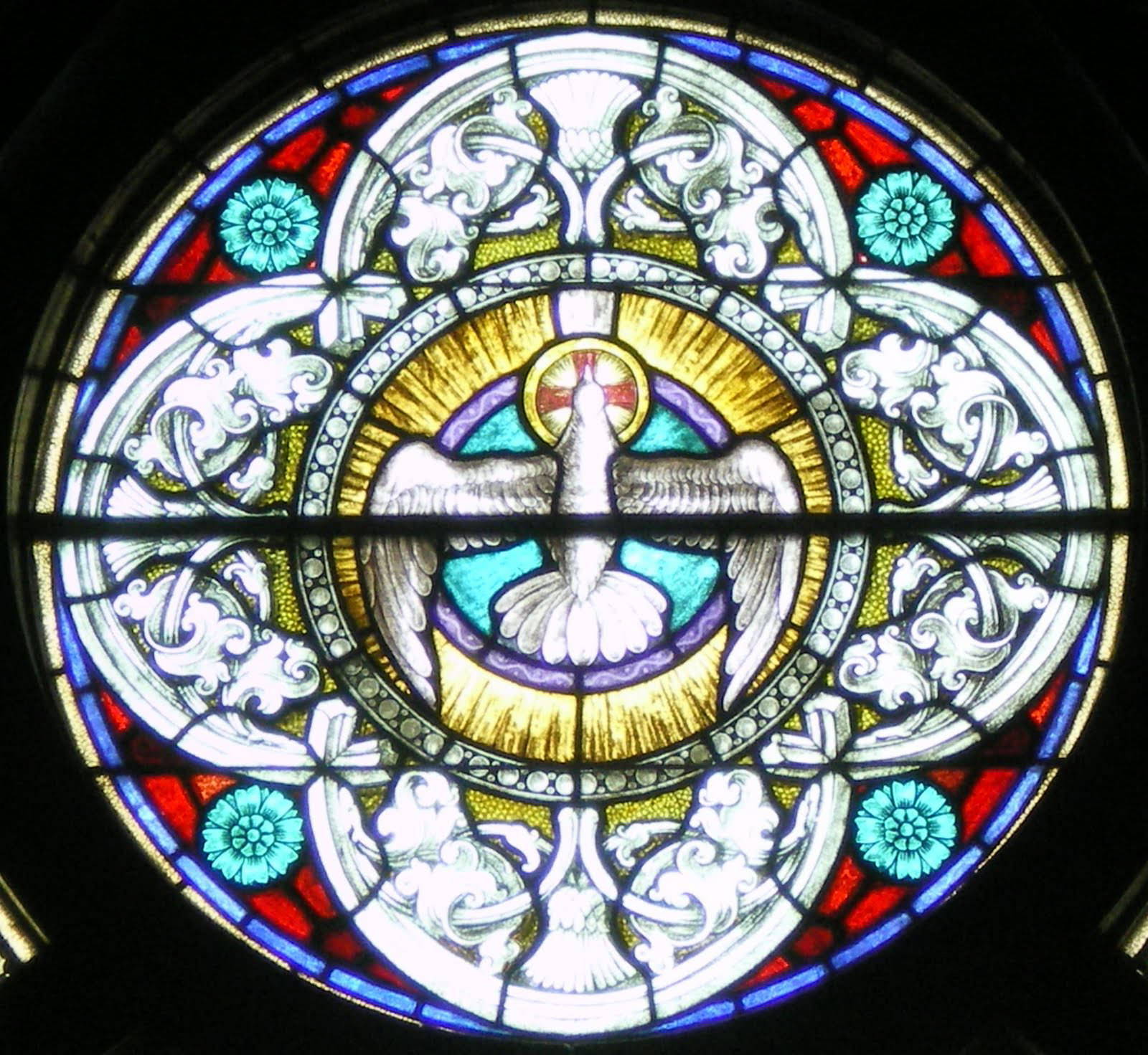Regina Caeli – Queen of Heaven, Rejoice!
The Regina Caeli, Latin for “Queen of Heaven,” is a hymn and prayer ...

Fulgentius of Ruspe here treats beautifully of the relationship between the unity and charity of the Church and the sacrament of the Eucharist, the sacrament of unity and charity (agape or caritas) leading to spiritual fellowship and communion (Greek koinonia and Latin communio).
The spiritual building up of the body of Christ is achieved through love. As Saint Peter says: Like living stones you are built into a spiritual house, to be a holy priesthood, offering spiritual sacrifices acceptable to God through Jesus Christ [ 1 Peter 2:5].
And there can be no more effective way to pray for this spiritual growth than for the Church, itself Christ’s body, to make the offering of his body and blood in the sacramental form of bread and wine. For the cup we drink is a participation [Greek koinonia; Latin communio] in the blood of Christ, and the bread we break is a participation in the body of Christ. Because there is one loaf, we who are many are one body, since we all share the same bread. [1 Corinthians 10:16-17]. And so we pray that, by the same grace which made the Church Christ’s body, all its members may remain firm in the unity of that body through the enduring bond of love.
We are right to pray that this may be brought about in us through the gift of the one Spirit of the Father and the Son. The holy Trinity, the one true God, is of its nature unity, equality and love, and by one divine activity sanctifies its adopted sons.
That is why Scripture says that God’s love has been poured into our hearts by the Holy Spirit he has given us [Romans 5:5]. The Holy Spirit, who is the one Spirit of the Father and the Son, produces in those to whom he gives the grace of divine adoption the same effect as he produced among those whom the Acts of the Apostles describes as having received the Holy Spirit. We are told that the company of those who believed were of one heart and soul, [Acts 4:32] because the one Spirit of the Father and the Son, who with the Father and the Son is one God, had created a single heart and soul in all those who believed.
This is why Saint Paul in his exhortation to the Ephesians says that this spiritual unity in the bond of peace must be carefully preserved. I, therefore, a prisoner for the Lord, he writes, beg you to lead a life worthy of your calling, with all humility and meekness and with patience, bearing with one another in love, eager to maintain the unity of the Spirit in the bond of peace. There is one body and one Spirit [Ephesians 4:3].
God makes the Church itself a sacrifice pleasing in his sight by preserving within it the love which his Holy Spirit has poured out. Thus the grace of that spiritual love is always available to us, enabling us continually to offer ourselves to God as a living sacrifice, holy and pleasing to him forever.
For more resources on the Eucharist, see the Eucharist Library of the Crossroads Initiative.
This post on the sacrament of unity is an excerpt from a book by Fulgentius of Ruspe addressed to Monimus (Lib. 2, 11-12: CCL 91, 46-48). It appears in the Roman Office of Readings for Tuesday of the 2nd week of Easter. The accompanying biblical reading is Revelation 2:1-11 (the exhortation to the Church of Ephesus to recover its first love).
No Comments